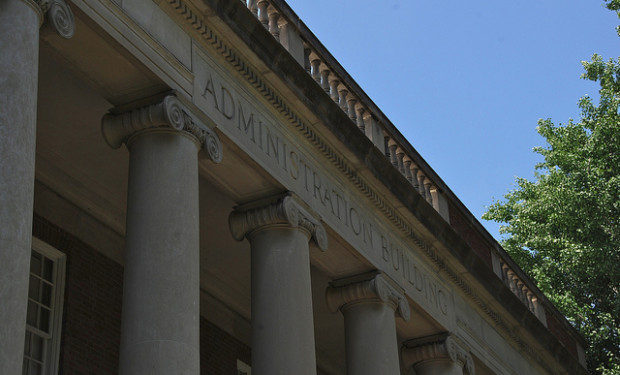Administrators respond to allegations of racial profiling by campus police departments
College and university officials are struggling to simultaneously support protestors and law enforcement.
This article is the second in a three-part series on allegations of racial profiling by college police departments. You can find Part One here. This week’s installment focuses on college’s responses to allegations of racial profiling by their police departments.
The recent controversies centering around racial profiling on college campuses by campus police have placed college and university administrators in a difficult spot. Administrators have responded differently as they attempt to balance the rights of students against preserving their relationship with those they depend upon to maintain order on campus.
University of Pennsylvania
The University of Pennsylvania is dealing with a unique situation, because the University’s president herself was involved in a “die-in” protest held by students. Amy Gutmann’s participation in the protest generated a direct negative response from the police union president. This criticism by police is a clear example of the risk a college administrator takes when they choose to take a stand against alleged police misbehavior.
Instead of trying to rebut the police union president, Eric J. Rohrback, the university’s administration attempted to make amends with its police officers. Maureen Rush, vice president for public safety, said in a letter to the campus police department that President Gutmann had only responded “instinctively” to the protestors who came to her office and “is 110 percent supportive of each and every member of our police department, and law enforcement in general.”
University of Minnesota
After receiving a letter from black faculty, staff, and specific student organizations, University of Minnesota administrators decided to stand behind the university’s police department. The administrators showed their support for campus police in a concrete and controversial way by refusing the demands that the campus police stop routinely publishing the race of suspects in campus crime alerts.
Steven Henneberry, a spokesman for the University of Minnesota, said there were “ongoing discussions between the administration and some groups on campus” about racial profiling concerns, but that the university continued to have a policy of using racial descriptions in campus crime alerts.
“The belief is that a well-informed community is an asset to public safety,” Mr. Henneberry continued, “and that involves providing as much information as we can to our community.”
The university later decided to foster a discussion about campus safety—including the impact of racial profiling and racial stereotypes on campus climate—and ways to address these issues together as an educational community. A “town hall” style meeting, which included university administration as panelists, attempted to generate a balanced discussion about the importance of diversity and tolerance while promoting safety on campus.
What is the correct response?
Following accusations of racial profiling at Vassar College, the school’s president announced that the administration would be amending its antidiscrimination policies and hiring a consultant firm to assist the college in finding a resolution. Wake Forest University used a town hall meeting, similar to the one eventually held at the University of Minnesota, to create and open dialogue throughout the campus community.
As college and university administrators continue to experiment with solutions that may strike a balance between campus police and the campus community, an open discussion may be a good place to start. From there, schools can determine how to navigate similar issues in the future. Possible initiatives that are being considered by schools include antibias police training programs and the use of cameras worn by officers.






